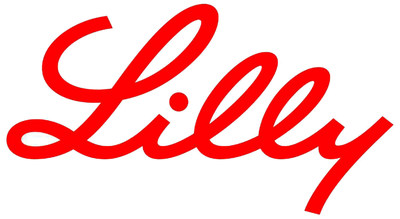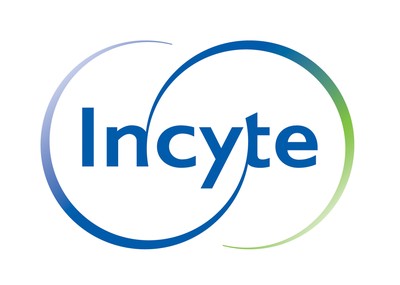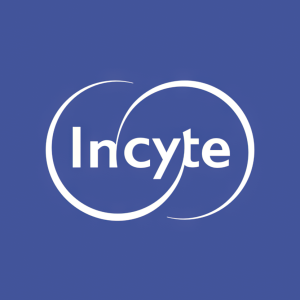Baricitinib in Combination with Remdesivir Reduces Time to Recovery in Hospitalized Patients with COVID-19 in NIAID-Sponsored ACTT-2 Trial
Eli Lilly and Incyte announced promising results from the Adaptive COVID-19 Treatment Trial (ACTT-2), which involved over 1,000 hospitalized patients. The trial assessed the efficacy of baricitinib combined with remdesivir, showing a significant reduction of approximately one day in median recovery time compared to remdesivir alone. This finding is statistically significant and meets the primary endpoint of the study. Lilly intends to seek emergency use authorization for the 4-mg dose of baricitinib for COVID-19 treatment, while also continuing trials to understand its full potential.
- Statistically significant reduction in median recovery time by approximately one day for patients treated with baricitinib and remdesivir compared to remdesivir alone.
- Plans to discuss emergency use authorization with the FDA for baricitinib as a COVID-19 treatment.
- Baricitinib is already approved for RA, ensuring a supply for existing patients.
- None.
Insights
Analyzing...
INDIANAPOLIS, Sept. 14, 2020 /PRNewswire/ -- Eli Lilly and Company (NYSE: LLY) and Incyte (NASDAQ: INCY) announced today initial data emerging from the Adaptive COVID-19 Treatment Trial (ACTT-2) sponsored by the National Institute of Allergy and Infectious Diseases (NIAID), part of the National Institutes of Health (NIH). ACTT-2 included more than 1,000 patients and began on May 8 to assess the efficacy and safety of a 4-mg dose of baricitinib plus remdesivir versus remdesivir in hospitalized patients with COVID-19. Baricitinib in combination with remdesivir met the primary endpoint of reduction of time to recovery in comparison with remdesivir.
Study investigators noted an approximately one-day reduction in median recovery time for the overall patient population treated with baricitinib in combination with remdesivir versus those treated with remdesivir. This finding was statistically significant. Recovery was defined as the participant being well enough for hospital discharge, meaning the participant either no longer required supplemental oxygen or ongoing medical care in the hospital, or was no longer hospitalized at Day 29. The study also met a key secondary endpoint comparing patient outcomes at Day 15 using an ordinal 8-point scale ranging from fully recovered to death.
An independent data and safety monitoring board overseeing the double-blind, randomized controlled trial met regularly throughout the trial to review safety data. Additional analyses are ongoing to understand other clinical outcome data, including mortality and safety data. NIAID is expected to publish full details of the study in a peer-reviewed journal.
"We are pleased with these data from the ACTT-2 study," said Patrik Jonsson, Lilly senior vice president and president of Lilly Bio-Medicines. "There is an urgent need to identify COVID-19 treatments, and we will continue to work with NIAID to understand these data and next steps on baricitinib's role moving forward. We appreciate NIAID selecting baricitinib for inclusion in this important study and the participants, investigators and collaborators for the vital roles they played."
"These findings from ACTT-2 are another step as we improve the care of these patients," said Andre Kalil, M.D., professor at the University of Nebraska Medical Center and a principal investigator of the ACTT studies. "These data may help us to better understand baricitinib's potential role in the treatment of COVID-19."
Based on the ACTT-2 data, Lilly plans to discuss the potential for emergency use authorization (EUA) with the U.S. Food and Drug Administration (FDA) and to explore similar measures with other regulatory agencies for baricitinib as a treatment of hospitalized patients with COVID-19. If authorized for use, Lilly will propose that baricitinib be available through commercial channels and will work with hospitals and governments to ensure patient access. Lilly will continue to create adequate supply for rheumatoid arthritis (RA) patients and ensure baricitinib remains available in countries where it is approved. In the U.S., baricitinib is approved for RA patients at a 2-mg daily dose; an EUA would potentially authorize a 4-mg dose for COVID-19.
Lilly will review the ACTT-2 data with NIAID and assess any impact on COV-BARRIER, the Phase 3 randomized, double-blind, placebo-controlled study it initiated in June to evaluate the efficacy and safety of baricitinib versus background therapy in hospitalized adults with COVID-19 in the U.S., Europe, Asia and Latin America.
"As a company, we've moved quickly to develop and evaluate medicines for patients for the prevention and treatment of COVID-19," said Daniel Skovronsky, M.D., Ph.D., Lilly senior vice president and chief scientific officer. "These data allow us to better understand baricitinib's role in potentially improving outcomes for hospitalized COVID-19 patients, and we look forward to continuing this research alongside our other initiatives to combat COVID-19."
Baricitinib, a JAK1/JAK2 inhibitor licensed to Lilly from Incyte and marketed as OLUMIANT®, is approved in more than 70 countries as a treatment for adults with moderately to severely active RA. Studying baricitinib in controlled trials is important in order to better characterize its potential benefits and understand the safety of its use as a COVID-19 treatment. The U.S. prescribing information for the approved use of baricitinib for RA includes boxed warnings regarding the use of baricitinib, including warnings about risk for developing blood clots and serious infections.
Lilly is also currently supporting ongoing multisite and single-site investigator-initiated trials in Europe and North America for hospitalized patients with COVID-19 infections.
About Lilly's COVID-19 Efforts
Lilly is bringing the full force of its scientific and medical expertise to attack the coronavirus pandemic around the world. Existing Lilly medicines are now being studied to understand their potential in treating complications of COVID-19, and the company is collaborating with two partner companies to discover novel antibody treatments for COVID-19. Lilly intends to test both single antibody therapy as well as combinations of antibodies (sometimes known as antibody cocktails) as potential therapeutics for COVID-19. Click here for media resources related to Lilly's COVID-19 efforts.
Indication and Usage for OLUMIANT (baricitinib) tablets (in the United States) for RA patients
OLUMIANT® (baricitinib) 2-mg is indicated for the treatment of adult patients with moderately to severely active rheumatoid arthritis who have had an inadequate response to one or more tumor necrosis factor (TNF) antagonist therapies. Limitation of Use: Not recommended for use in combination with other JAK inhibitors, biologic disease-modifying antirheumatic drugs (DMARDs), or with potent immunosuppressants such as azathioprine and cyclosporine.
IMPORTANT SAFETY INFORMATION FOR OLUMIANT (baricitinib) TABLETS
WARNING: SERIOUS INFECTIONS, MALIGNANCY, AND THROMBOSIS
SERIOUS INFECTIONS: Patients treated with Olumiant are at risk for developing serious infections that may lead to hospitalization or death. Most patients who developed these infections were taking concomitant immunosuppressants such as methotrexate or corticosteroids. If a serious infection develops, interrupt Olumiant until the infection is controlled. Reported infections include:
- Active tuberculosis (TB), which may present with pulmonary or extrapulmonary disease. Test patients for latent TB before initiating Olumiant and during therapy. If positive, start treatment for latent infection prior to Olumiant use.
- Invasive fungal infections, including candidiasis and pneumocystosis. Patients with invasive fungal infections may present with disseminated, rather than localized, disease.
- Bacterial, viral, and other infections due to opportunistic pathogens.
Carefully consider the risks and benefits of Olumiant prior to initiating therapy in patients with chronic or recurrent infection.
Closely monitor patients for the development of signs and symptoms of infection during and after treatment with Olumiant including the possible development of TB in patients who tested negative for latent TB infection prior to initiating therapy.
MALIGNANCIES: Lymphoma and other malignancies have been observed in patients treated with Olumiant.
THROMBOSIS: Thrombosis, including deep venous thrombosis (DVT) and pulmonary embolism (PE), has been observed at an increased incidence in patients treated with Olumiant compared to placebo. In addition, there were cases of arterial thrombosis. Many of these adverse events were serious and some resulted in death. Patients with symptoms of thrombosis should be promptly evaluated.
WARNINGS AND PRECAUTIONS
SERIOUS INFECTIONS: The most common serious infections reported with Olumiant included pneumonia, herpes zoster and urinary tract infection. Among opportunistic infections, tuberculosis, multidermatomal herpes zoster, esophageal candidiasis, pneumocystosis, acute histoplasmosis, cryptococcosis, cytomegalovirus and BK virus were reported with Olumiant. Some patients have presented with disseminated rather than local disease and were often taking concomitant immunosuppressants such as methotrexate or corticosteroids. Avoid Olumiant in patients with an active, serious infection, including localized infections. Consider the risks and benefits of treatment prior to initiating Olumiant in patients:
- with chronic or recurrent infection
- who have been exposed to TB
- with a history of a serious or an opportunistic infection
- who have resided or traveled in areas of endemic tuberculosis or endemic mycoses; or
- with underlying conditions that may predispose them to infection.
Closely monitor patients for infections during and after Olumiant treatment. Interrupt Olumiant if a patient develops a serious infection, an opportunistic infection, or sepsis. Do not resume Olumiant until the infection is controlled.
Tuberculosis – Before initiating Olumiant evaluate and test patients for latent or active infection and treat patients with latent TB with standard antimycobacterial therapy. Olumiant should not be given to patients with active TB. Consider anti-TB therapy prior to initiating Olumiant in patients with a history of latent or active TB in whom an adequate course of treatment cannot be confirmed, and for patients with a negative test for latent TB but who have risk factors for TB infection. Monitor patients for TB during Olumiant treatment.
Viral Reactivation – Viral reactivation, including cases of herpes virus reactivation (e.g., herpes zoster), were reported in clinical studies with Olumiant. If a patient develops herpes zoster, interrupt Olumiant treatment until the episode resolves.
The impact of Olumiant on chronic viral hepatitis reactivation is unknown. Screen for viral hepatitis in accordance with clinical guidelines before initiating Olumiant.
MALIGNANCY AND LYMPHOPROLIFERATIVE DISORDERS: Malignancies were observed in Olumiant clinical studies. Consider the risks and benefits of Olumiant prior to initiating therapy in patients with a known malignancy other than a successfully treated non-melanoma skin cancer (NMSC) or when considering continuing Olumiant in patients who develop a malignancy. NMSCs were reported in patients treated with Olumiant. Periodic skin examination is recommended for patients who are at increased risk for skin cancer.
THROMBOSIS: Thrombosis, including DVT and PE, has been observed at an increased incidence in Olumiant-treated patients compared to placebo. In addition, arterial thrombosis events in the extremities have been reported in clinical studies with Olumiant. Many of these adverse events were serious and some resulted in death. There was no clear relationship between platelet count elevations and thrombotic events. Use Olumiant with caution in patients who may be at increased risk of thrombosis. If clinical features of DVT/PE or arterial thrombosis occur, evaluate patients promptly and treat appropriately.
GASTROINTESTINAL PERFORATIONS: Gastrointestinal perforations have been reported in Olumiant clinical studies, although the role of JAK inhibition in these events is not known. Use Olumiant with caution in patients who may be at increased risk for gastrointestinal perforation (e.g., patients with a history of diverticulitis). Promptly evaluate patients who present with new onset abdominal symptoms for early identification of gastrointestinal perforation.
LABORATORY ABNORMALITIES:
Neutropenia – Olumiant treatment was associated with an increased incidence of neutropenia (absolute neutrophil count [ANC] <1000 cells/mm3) compared to placebo. Avoid initiation or interrupt Olumiant treatment in patients with an ANC <1000 cells/mm3. Evaluate at baseline and thereafter according to routine patient management.
Lymphopenia – Absolute lymphocyte count (ALC) <500 cells/mm3 were reported in Olumiant clinical trials. Lymphocyte counts less than the lower limit of normal were associated with infection in patients treated with Olumiant, but not placebo. Avoid initiation or interrupt Olumiant treatment in patients with an ALC <500 cells/mm3. Evaluate at baseline and thereafter according to routine patient management.
Anemia – Decreases in hemoglobin levels to <8 g/dL were reported in Olumiant clinical trials. Avoid initiation or interrupt Olumiant treatment in patients with hemoglobin <8 g/dL. Evaluate at baseline and thereafter according to routine patient management.
Liver Enzyme Elevations – Olumiant treatment was associated with increased incidence of liver enzyme elevation compared to placebo. Increases of ALT ≥5x upper limit of normal (ULN) and increases of AST ≥10x ULN were observed in patients in Olumiant clinical trials.
Evaluate at baseline and thereafter according to routine patient management. Promptly investigate the cause of liver enzyme elevation to identify potential cases of drug-induced liver injury. If increases in ALT or AST are observed and drug-induced liver injury is suspected, interrupt Olumiant until this diagnosis is excluded.
Lipid Elevations – Treatment with Olumiant was associated with increases in lipid parameters, including total cholesterol, low-density lipoprotein cholesterol and high-density lipoprotein cholesterol. Assess lipid parameters approximately 12 weeks following Olumiant initiation. Manage patients according to clinical guidelines for the management of hyperlipidemia.
VACCINATIONS: Avoid use of live vaccines with Olumiant. Update immunizations in agreement with current immunization guidelines prior to initiating Olumiant therapy.
HYPERSENSITIVITY: Reactions such as angioedema, urticaria, and rash that may reflect drug sensitivity have been observed in patients receiving Olumiant, including serious reactions. If a serious hypersensitivity reaction occurs, promptly discontinue Olumiant while evaluating the potential causes of the reaction.
ADVERSE REACTIONS
Most common adverse reactions include: upper respiratory tract infections (
USE IN SPECIFIC POPULATIONS
PREGNANCY AND LACTATION: No information is available to support the use of Olumiant in pregnancy or lactation. Advise women not to breastfeed during treatment with Olumiant.
HEPATIC AND RENAL IMPAIRMENT: Olumiant is not recommended in patients with severe hepatic impairment or in patients with severe renal impairment.
Please click to access full Prescribing Information, including Boxed Warning about Serious Infections, Malignancies, and Thrombosis, and Medication Guide.
BA HCP ISI 09JUL2020
About OLUMIANT®
OLUMIANT is a once-daily, oral JAK inhibitor approved in the U.S. for the treatment of adults with moderately to severely active rheumatoid arthritis who have had an inadequate response to one or more TNF inhibitor therapies, and approved outside of the U.S. for patients with moderately to severely active rheumatoid arthritis who have had an inadequate response to one or more DMARDs.i There are four known JAK enzymes: JAK1, JAK2, JAK3 and TYK2. JAK-dependent cytokines have been implicated in the pathogenesis of a number of inflammatory and autoimmune diseases.ii OLUMIANT has greater inhibitory potency at JAK1, JAK2 and TYK2 relative to JAK3; however, the relevance of inhibition of specific JAK enzymes to therapeutic effectiveness is not currently known.i
In December 2009, Lilly and Incyte announced an exclusive worldwide license and collaboration agreement for the development and commercialization of baricitinib and certain follow-on compounds for patients with inflammatory and autoimmune diseases.
About Eli Lilly and Company
Lilly is a global health care leader that unites caring with discovery to create medicines that make life better for people around the world. We were founded more than a century ago by a man committed to creating high-quality medicines that meet real needs, and today we remain true to that mission in all our work. Across the globe, Lilly employees work to discover and bring life-changing medicines to those who need them, improve the understanding and management of disease, and give back to communities through philanthropy and volunteerism. To learn more about Lilly, please visit us at lilly.com and lilly.com/newsroom. P-LLY
About Incyte
Incyte is a Wilmington, Delaware-based, global biopharmaceutical company focused on finding solutions for serious unmet medical needs through the discovery, development and commercialization of proprietary therapeutics. For additional information on Incyte, please visit Incyte.com and follow @Incyte.
This press release contains forward-looking statements (as that term is defined in the Private Securities Litigation Reform Act of 1995) about OLUMIANT (baricitinib) as a potential treatment for patients with COVID-19 and as a treatment for patients with rheumatoid arthritis, and about the supply of OLUMIANT, and reflects Lilly's and Incyte's current beliefs. This press release also contains a forward-looking statement about Lilly's potential antibody treatments for COVID-19. However, as with any pharmaceutical product, there are substantial risks and uncertainties in the process of development and commercialization. Among other things, there can be no guarantee that OLUMIANT will receive additional regulatory approvals or continue to be commercially successful, that we can provide an adequate supply of OLUMIANT in all circumstances, or that potential antibody treatments will be safe and effective. For further discussion of these and other risks and uncertainties, see Lilly's and Incyte's most recent respective Form 10-K and Form 10-Q filings with the United States Securities and Exchange Commission. Except as required by law, Lilly and Incyte undertake no duty to update forward-looking statements to reflect events after the date of this release.
i Olumiant Prescribing Information, 2020.
ii Walker JG and Smith MD. J Rheumatol. 2005;32;1650-1653.
Refer to: | Kristen Porter Basu; basu_kristen_porter@lilly.com; 317-447-2199 (media) |
Kevin Hern; hern_kevin_r@lilly.com; 317-277-1838 (investors) | |
Catalina Loveman; cloveman@incyte.com; 302-498-6171 (Incyte media) | |
Michael Booth, DPhil; mbooth@incyte.com; 302-498-5914 (Incyte investors) |
![]() View original content to download multimedia:http://www.prnewswire.com/news-releases/baricitinib-in-combination-with-remdesivir-reduces-time-to-recovery-in-hospitalized-patients-with-covid-19-in-niaid-sponsored-actt-2-trial-301129865.html
View original content to download multimedia:http://www.prnewswire.com/news-releases/baricitinib-in-combination-with-remdesivir-reduces-time-to-recovery-in-hospitalized-patients-with-covid-19-in-niaid-sponsored-actt-2-trial-301129865.html
SOURCE Eli Lilly and Company









